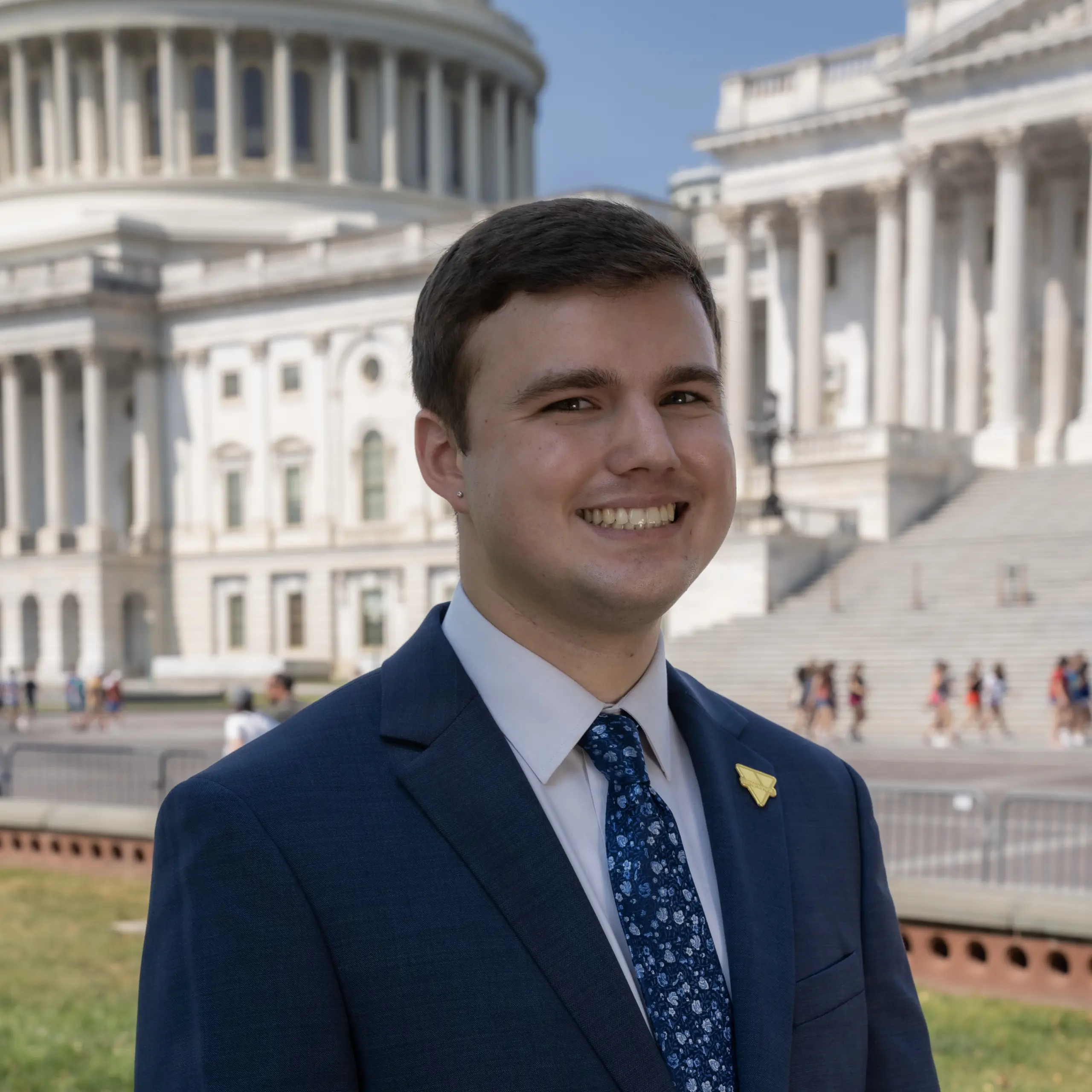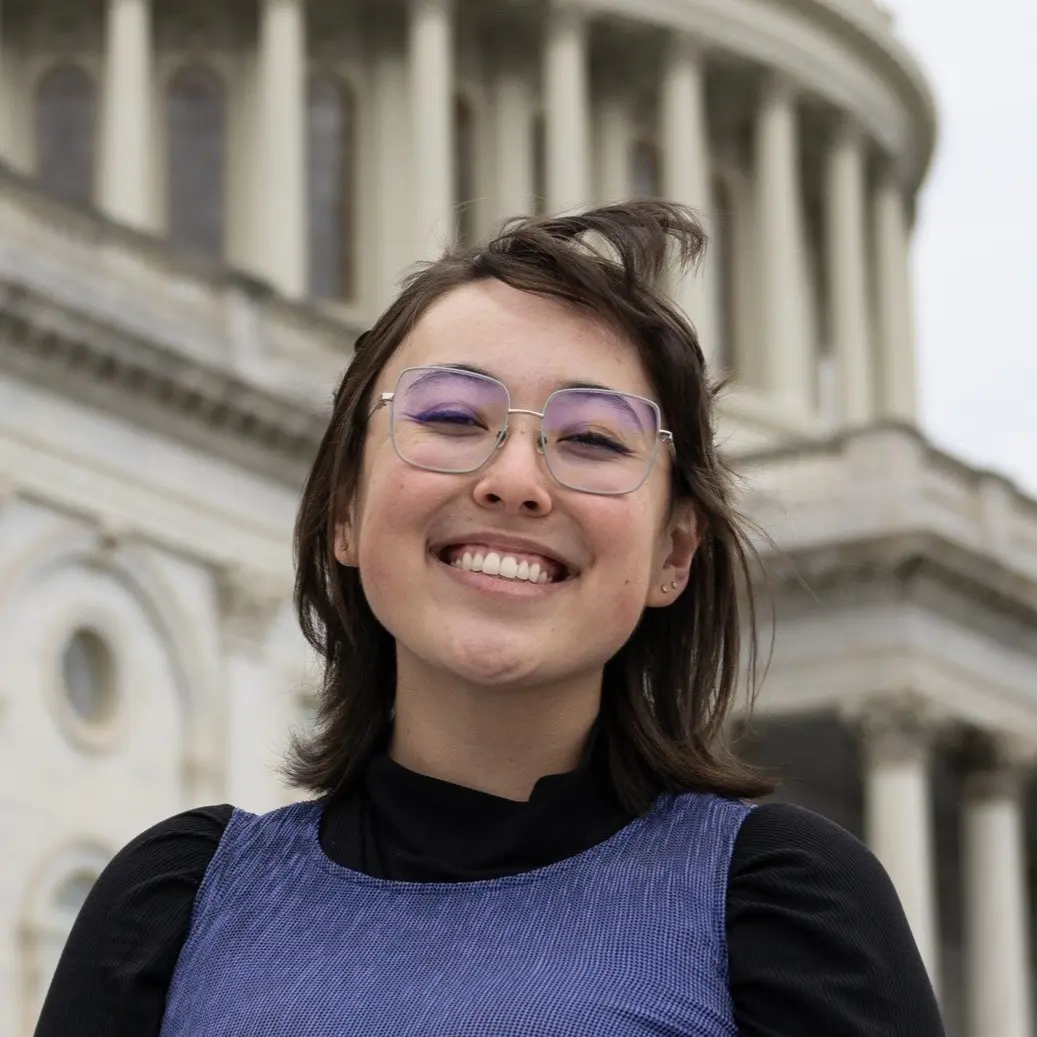
OUT ON THE HILL is the official blog of the Victory Congressional Interns. Views expressed do not necessarily reflect those of LGBTQ+ Victory Institute. Learn more about the internship at victoryinstitute.org/vci.
———————————–
While navigating the United States Capitol and its many buildings during my first six weeks on the hill, I noticed a frequent symbol: flags. Outside of each Senate office, there were flags. Most were from the Senator’s state, and nearly all had a United States flag. Their dedication to their state and country was very apparent. Despite this similarity among all Senators, offices also showcased flags that indicated a political issue they are passionate about: prisoners of war, Black Lives Matter, the war in Ukraine, and, especially during June, LGBTQ+ rights. In these buildings, flags were political statements.
Walking up to the office of United States Senator Jon Ossoff was a dream come true. I ascended the elevator so excited to meet my fellow interns and learn from experts in Congress, and the internship has exceeded expectations. Over the past six weeks, I have been provided with inclusive opportunities to socialize, a diverse workplace to thrive, and an equitable division of tasks that have allowed me to mature as a young professional. My one surprise was only noticed recently, but as I entered Senator Ossoff’s office, I only saw two flags: the Georgia state flag and the United States flag. Senator Ossoff is one of only a few Senators I observed that does not display political flags outside the office, leading me to ask him about it during a roundtable with the other office interns.
Asking a Senator directly about the lack of an LGBTQ+ Pride flag outside their office is completely outside the norm; nonetheless, I knew my future self would regret not asking. I spent the entire workday thinking about the best way to phrase this question and what the goal of my question was. In short, I wanted an LGBTQ+ Pride flag outside our office.
After this conversation with the Senator and fellow interns, I was reminded that the institution I work in was not designed with me in mind. Frequently, in Washington, D.C., I forget that I am seen as a queer person because of the inclusivity of the community at large. My queer identity no longer serves as a target on my back or a reason for someone to stare at me.
However, I was reminded of my Southern identity during this conversation. As a young gay Democrat from the South working for a young Democrat from the South, I was reminded of the inherently political nature that my presence in a Southern Senate office brings. I was accustomed to a lack of diversity, equity, and inclusion in my home state of Kentucky, but moving to D.C. shifted my perception. I saw this internship and this town as a sanctuary, and this interaction served as a reality check. I was living through a completely unique experience.
Because of his position in both the Senate and the South, Senator Ossoff could not be as symbolically supportive of the LGBTQ+ community. Still, he showed his solidarity through votes and legislation. From his YEA vote on the Respect for Marriage Act to his co-sponsorship of the Equality Act, Senator Ossoff has stood with the LGBTQ+ community in an important and non-performative way.
From this moment forward, I was reminded of two things: my service to the people of Georgia and my service to the people of the LGBTQ+ community. A dichotomy emerged when I realized that, despite my own personal views or the views of the Senator, we serve the people who elected him and work to deliver outcomes in their best interest, not my own. On the other hand, I needed to remain true to myself and my values while opening doors for future LGBTQ+ interns. Needless to say, the reality of this moment sunk in. Despite all the progress we as the LGBTQ+ community have made, I may never get an LGBTQ+ Pride flag outside my Senate office, but I can strive to ensure that the next intern who asks gets a different result.


